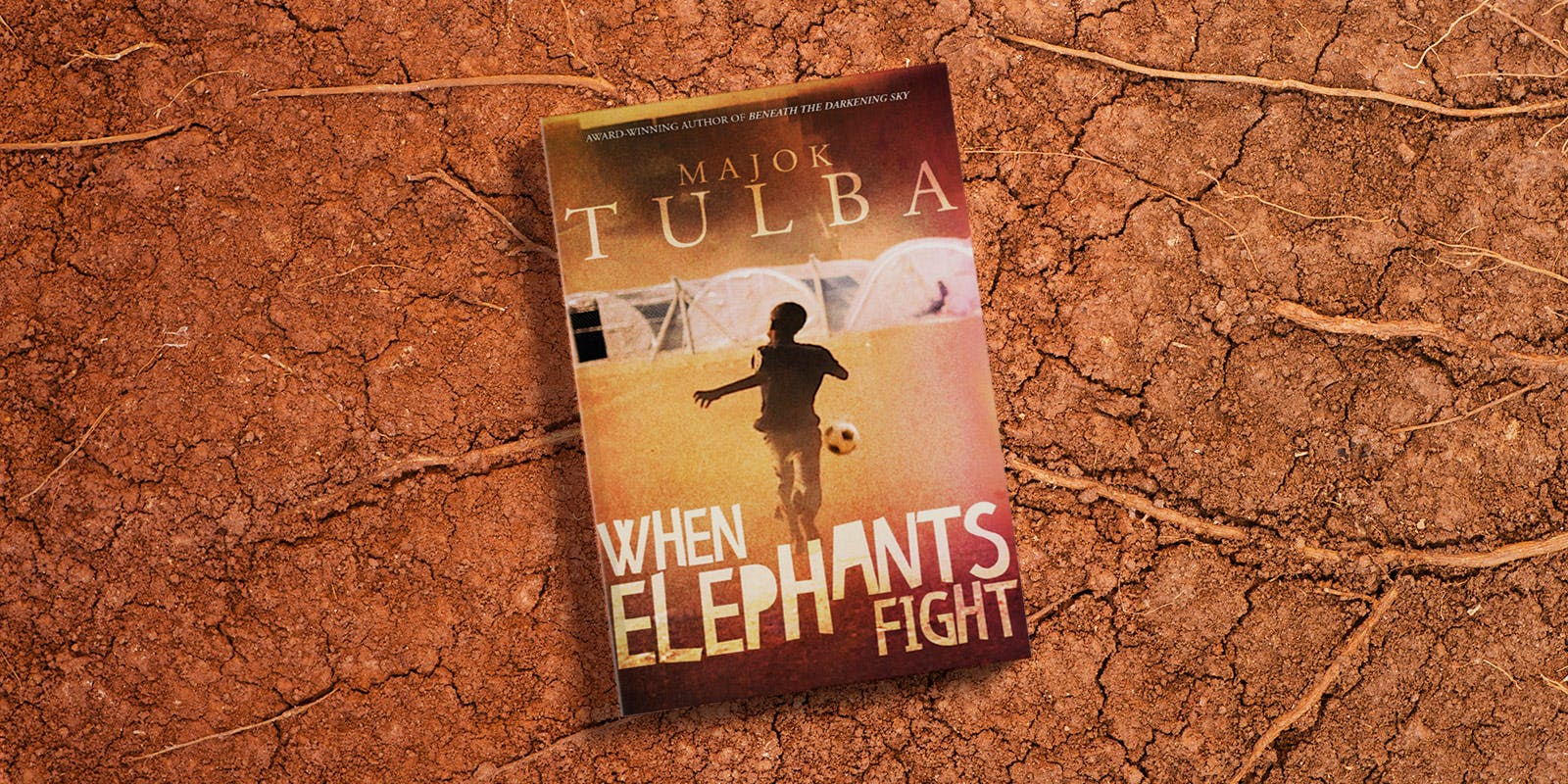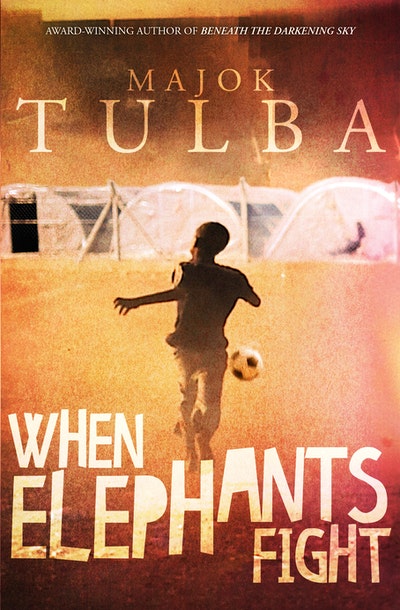A haunting coming-of-age novel that’s sure to spark conversation at your next book club meeting.
In the South Sudanese village of Pacong, Juba is young and old at the same time. Forced to grow up quickly in the civil war, he is nonetheless fun-loving as well as smart. But his little world cannot deflect the conflict raging around it and soon he must flee the life he loves.
Ahead lies a long trek to a refugee camp, a journey arduous and fraught. When at last it ends, Juba comes to wonder if there’s any such thing as safe haven in his country. Yet life in the camp is not all bad. There can be intense joy amid the deprivation, there are angels as well as demons.
Poised part way between heaven and hell, When Elephants Fight draws a horrifying picture of what humanity can do to itself, but Juba’s is a story of transcendence and resilience, even exultation.
Discussion points and questions:
- In giving insight to the experience of war refugees, When Elephants Fight accounts for only a tiny portion of them, yet it also stands for all of them – for all those who have no outlet for their story. Discuss. Did the novel change the way you see people who are forced to seek refuge?
- The simple, disarming voice of Juba on the cusp of adulthood belies the horror of parts of his story, which is the stronger for being understated. Do you agree?
- While Juba’s language is plain, it’s also rich in metaphor, and he has a very imaginative mind. To what extent does this soften his story, in your opinion?
- Consider the ways in which Juba is both young and old at the same time. How does he change during the course of the novel?
- The natural world is very present in this novel and its beauty is regularly highlighted, but it’s not benign. In fact the dangers it presents rival that of the civil war. Discuss the way in which acts of nature are contrasted with the actions of humans.
- And consider other uses of contrast and juxtaposition in the novel: between the traditional and the modern, between worldliness and naivety, between good and evil, between despair and hope, between the horrific and the humorous, between the boring and the shocking, the ordinary and the terrifying, and any others that you observed.
- What do you think Oprah represents to Juba?
- Discuss the importance of football in the camp.
- Consider the role of storytelling in this novel. Juba has learnt to tell stories from his grandfather and he makes a promise to honour him by keeping them alive. How do you see the oral culture of the Dinka people affecting Juba’s telling of the novel’s story?
- On page 144 Juba comments that there’s no pride in the refugee camp, only survival. What do you imagine the other psychological effects of living in this way to be?
- It might be said that When Elephants Fight does not have a conclusive ending as such, but finishes in a manner that mirrors life in the camp. Do you agree?
- Consider the extremes of human character portrayed in this novel, from the men who kill and rape, to the people who stomp over children to get to the food bags in the camp, to Yomjima, who selflessly helps others while feeling utterly miserable herself.
- Discuss the way in which the death of innocent people is so arbitrary in this novel, and all the more shocking for it. Those we’re not expecting to die are killed in an instant; others have miraculous escapes. Does the novel draw a parallel between the reader not being allowed to take anything for granted and the situation of the characters?
- Briefly and subtly, When Elephants Fight comments on the attitude of Australian governments towards refugees. What did you make of this scene?
- While this novel can be harrowing to read in parts, every single day in the real world people live through similar events and worse. What’s the role of literature in regard to such events, in your opinion?













